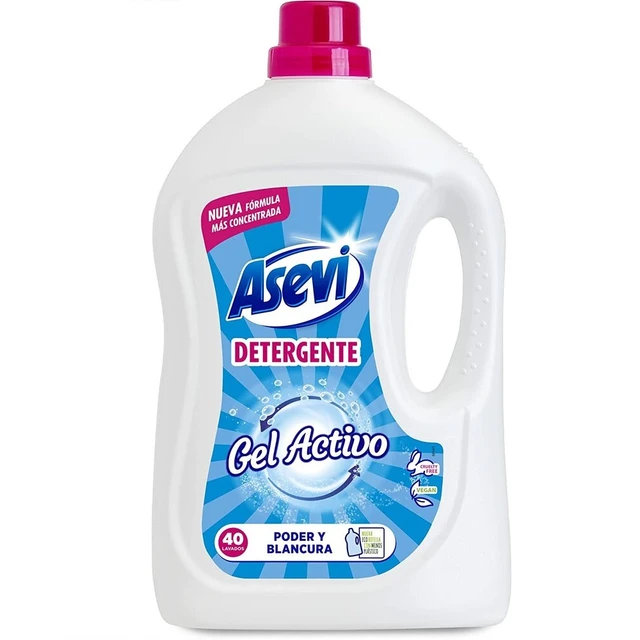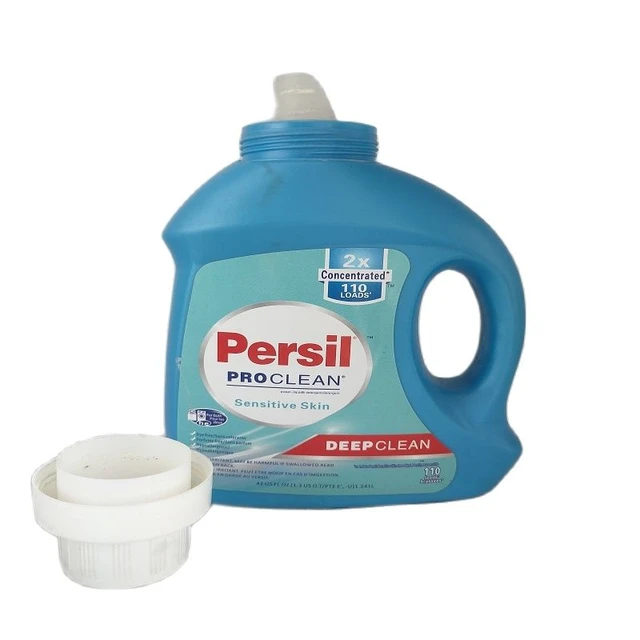 Introduction:
Introduction:
Laundry detergent is an essential product for cleaning clothes effectively. However, there may be instances when you run out of laundry detergent and wonder if you can use dish soap as a substitution. In this comprehensive guide, we will explore whether dish soap is a suitable alternative to laundry detergent. By understanding the differences in composition and functionality between these two products, you can make an informed decision on using dish soap for laundry and ensure the best results for your clothes.
 Here are some common types:
Here are some common types:
There are several types of laundry detergents or laundry liquids available on the market. Here are some common types:
Standard/Regular Detergent:
Regular or standard laundry detergents are designed for everyday use. They are effective in removing dirt, stains, and odors from various types of fabrics.
High-Efficiency (HE) Detergent:
HE detergents are specifically formulated for use in high-efficiency washing machines. These machines use less water and require detergents with low-sudsing formulas to avoid excessive foam and ensure proper cleaning.
Eco-Friendly/Green Detergent:
Eco-friendly or green laundry detergents are manufactured with a focus on environmentally friendly practices. These detergents often use plant-based or biodegradable ingredients and are free of harsh chemicals, artificial fragrances, and dyes.
Sensitive Skin Detergent:
Sensitive skin detergents are specially formulated to be gentle on the skin. They are typically free of harsh chemicals, fragrance-free, and hypoallergenic, making them suitable for individuals with sensitive skin or allergies.
Delicate/Fine Fabric Detergent:
Delicate or fine fabric detergents are specifically designed to clean and care for delicate fabrics such as silk, wool, or lace. These detergents have a gentle formula that helps preserve and protect the delicate fibers.
Stain Remover Detergent:
Stain remover detergents are formulated to target tough stains such as grease, oil, grass, or wine. They often contain enzymes or other specialized ingredients that help break down and remove stubborn stains.
Color-Safe Detergent:
Color-safe detergents are designed to prevent color fading or bleeding in laundry. They are formulated with ingredients that help protect colors and preserve the vibrancy of clothes.
Each type of laundry detergent is suitable for different laundry needs, fabric types, and washing machine requirements. It’s important to read the instructions on the detergent packaging to ensure proper usage and dosing for effective and safe laundering.
Composition and Functionality Differences
Dish Soap Composition:
Dish soap is specifically formulated for removing grease and food residues from dishes and cookware.
It contains surfactants and enzymes that break down oils, fats, and food particles.
Laundry Detergent Composition:
Laundry detergent is designed to remove a variety of stains and dirt from clothes.
It contains enzymes, surfactants, builders, and additives that target specific stains and odors.
Differences in Functionality:
Dish soap is intended to remove grease and food stains, while laundry detergent is formulated to tackle a wide range of stains, including grease, dirt, oil, and sweat.
Laundry detergent is formulated to work effectively in water at varying temperatures, while dish soap may not perform as well in different water conditions.
 Dish Soap as a Laundry Detergent Substitute
Dish Soap as a Laundry Detergent Substitute
Washing Machine Type:
The type of washing machine you have can influence the effectiveness of dish soap as a substitute.
High-efficiency (HE) machines require specially formulated detergents, and using dish soap may result in excessive suds and potential damage to the machine.
Suitable Fabric Types:
Dish soap may work better as a laundry detergent substitute for washable and durable fabrics, such as cotton and linen.
Delicate fabrics or those requiring special care may not be suitable for cleaning with dish soap due to its potentially harsh or abrasive nature.
Pre-treating Stains:
Dish soap can be used as a pre-treatment for specific stains, such as grease or oil stains, before washing with regular laundry detergent.
Apply a small amount of dish soap directly to the stain, rub gently, and rinse before laundering as usual.
 Potential Issues and Considerations
Potential Issues and Considerations
Residue and Suds:
Dish soap may leave a residue or cause excessive suds when used in a washing machine as a laundry detergent substitute.
This residue can build up over time, causing clothes to feel stiff, dull, or sticky.
Fabric Damage:
Dish soap may be more abrasive or harsh than laundry detergent, potentially causing damage to sensitive fabrics.
Use caution when using dish soap, especially on delicate or expensive clothing items.
Long-Term Effects on the Washing Machine:
Regular use of dish soap in a washing machine can lead to clogged pipes, damage to the machine’s parts, or excessive wear and tear.
It is generally recommended to use appropriate laundry detergent to maintain the longevity and functionality of the machine.
If you are experiencing an allergic reaction or sensitivity to dish soap used as a laundry detergent, there are a few steps you can take:
Stop Using Dish Soap: Discontinue using dish soap as a laundry detergent immediately to prevent further irritation or allergic reactions.
Rinse Clothes Thoroughly:
If possible, rinse the affected clothing items with water to remove any residual dish soap. This can help minimize contact with the irritant and reduce the chances of skin irritation.
Use a Gentle Laundry Detergent:
Switch to a laundry detergent specifically designed for sensitive skin or allergies. Look for products labeled hypoallergenic, fragrance-free, and free of harsh chemicals. These detergents are formulated to be milder and gentler on the skin.
Rewash Clothes:
Rewash the affected clothing items with the appropriate gentle laundry detergent to ensure thorough cleaning and to remove any remaining traces of the dish soap.
Seek Medical Advice:
If your allergic reaction or sensitivity persists or worsens, it is advisable to consult a medical professional. They can provide appropriate guidance and recommend any necessary treatments or medications to alleviate your symptoms.
Remember to always read and follow the instructions on laundry detergent packaging, and if you have a known allergy or sensitivity, be cautious when trying new products.
 Conclusion:
Conclusion:
While dish soap may be a temporary solution for cleaning clothes when faced with a lack of laundry detergent, it is not a perfect substitute. Dish soap is specifically designed for dishwashing and may not effectively remove stains or protect delicate fabrics. Its composition and functionality are different from laundry detergents, which are formulated to handle various fabric types and stains. If using dish soap as a substitute, exercise caution, especially with delicate fabrics, and consider pre-treating stains before laundering. In the long run, it is advisable to use the appropriate laundry detergent to ensure optimal cleaning performance and maintain the longevity of your clothes and washing machine.
